The Commonwealth Scientific and Industrial Research Organisation’s (CSIRO) final GenCost report for 2024-25, compiled in collaboration with the Australian Energy Market Operator (AEMO), shows integrated renewable energy remains the lowest-cost form of new generation.
Gas with carbon capture and storage and large-scale nuclear are the next lowest-cost options, but as neither are currently deployed for electricity generation in Australia, they could be subject to longer lead times and first-of-a-kind premiums. Small modular nuclear reactors remain the highest-cost option.
CSIRO said cost projections for most technologies have been revised upwards since the draft report released in December owing to inflationary challenges including an escalation in Australian construction costs, supply chain constraints affecting some technologies, and an increase in the average cost of capital financing.
“Together, these changes have increased technology costs compared to previous GenCost reports but there has been no significant change to the relative competitive position of technologies,” the agency said.
“Renewables (wind and solar) backed by storage and transmission remained the lowest-cost new-build electricity generation technologies.”
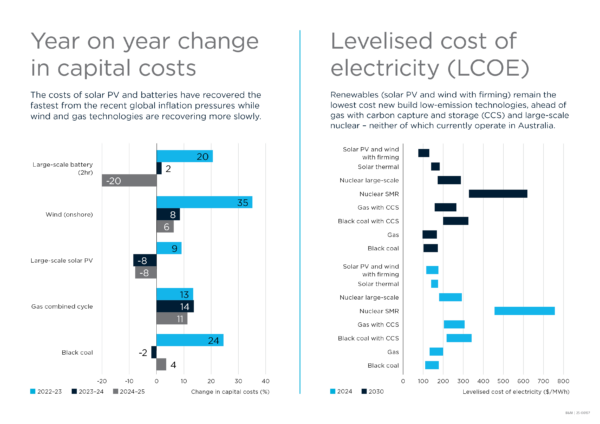
The report, now in its seventh year, shows that solar PV and battery storage have weathered the inflationary period the best of all technologies.
The capital costs of large-scale solar PV have fallen by 8% for the second consecutive year while large-scale battery costs improved the most in 2024-25, dropping by 20% in the past 12 months. Onshore wind costs increased by 6% in 2024-25.
The GenCost assessment estimates that the current capital costs for large-scale solar PV is $1,344 per kWh while rooftop solar PV, based on a 7 kWh system, costs $1,314 per kWh. Wind power is priced at $3,221 per kWh.
The report puts the current price of a two-hour battery at $580 per kWh, made up of the battery price of $309 / kWh and the $271 / kWh balance of plant (BOP) costs. This falls to $406 / kWh for a four-hour battery, including $269 / kWh for the battery and $137 / kWh BOP.
The report also includes current costs for small-scale batteries. They are estimated at $13,500 for a 5 kW / 10 kWh system or $1,350 per kWh, including installation.
While renewables are more cost effective than other technologies, the report highlights that electricity systems require a diversity of resources to deliver all of their functions and so no single technology will meet all the system’s needs regardless of its relative cost position.
Dietmar Tourbier, CSIRO’s Director of Energy, said by drawing on expert input from across the electricity sector, GenCost provides electricity generation cost projections that allow for evidence-based decisions to help guide Australia’s energy transition.
“GenCost delivers transparent, independent cost estimates that feed directly into electricity system modelling and investment planning,” he said.
“We refresh forecasts annually using the best available data at the time to ensure GenCost reflects current market conditions and remains a trusted benchmark.”
AEMO Executive General Manager System Design Merryn York said the latest iteration of the GenCost report would aid in the market operator’s energy system planning.
“We’ll use the capital costs for generation and storage from GenCost in the upcoming Draft Integrated System Plan in December,” she said.
This content is protected by copyright and may not be reused. If you want to cooperate with us and would like to reuse some of our content, please contact: editors@pv-magazine.com.
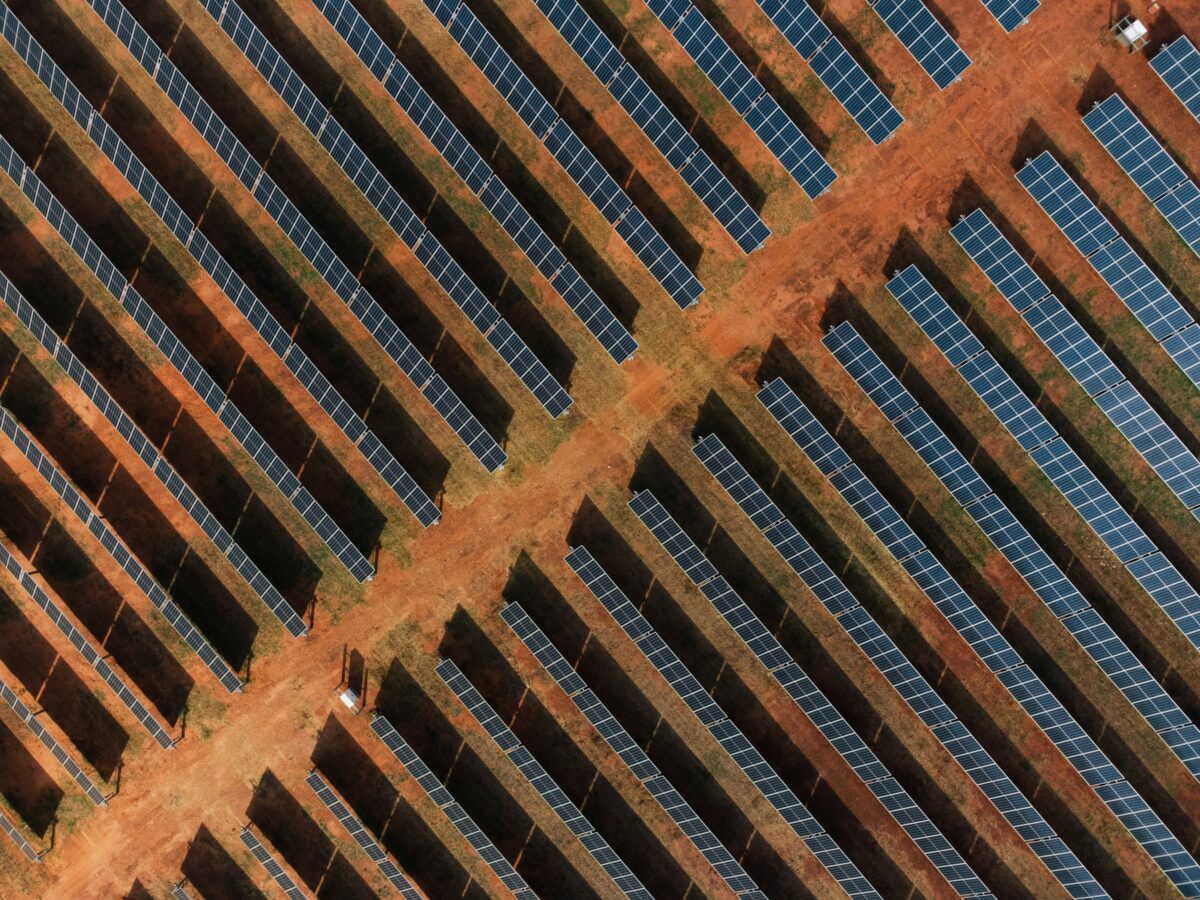
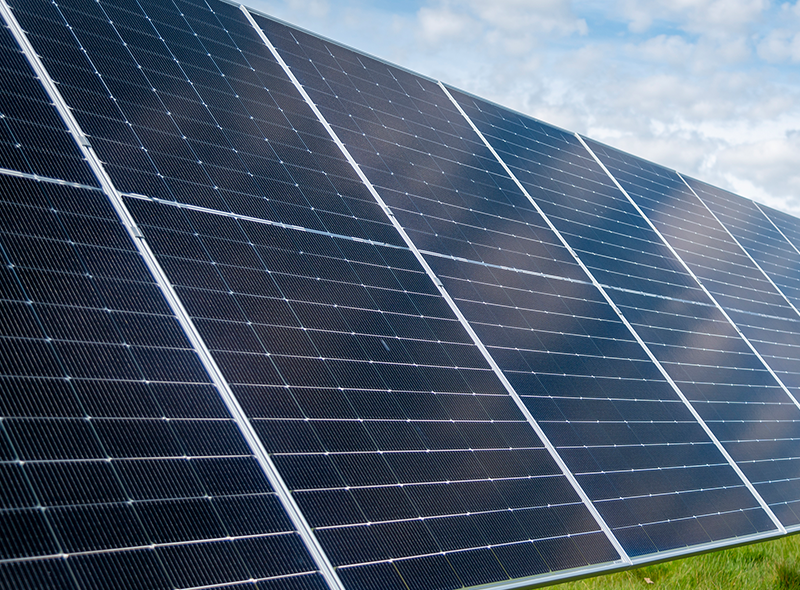


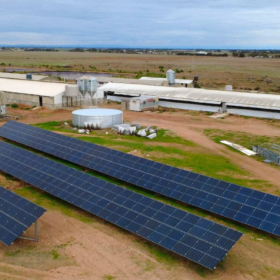
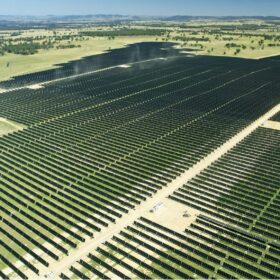
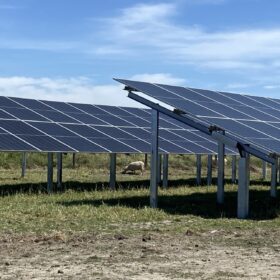
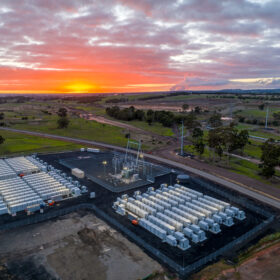
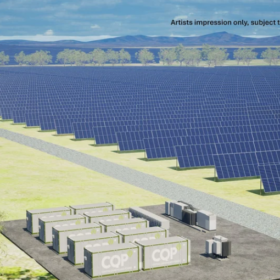
2 comments
By submitting this form you agree to pv magazine using your data for the purposes of publishing your comment.
Your personal data will only be disclosed or otherwise transmitted to third parties for the purposes of spam filtering or if this is necessary for technical maintenance of the website. Any other transfer to third parties will not take place unless this is justified on the basis of applicable data protection regulations or if pv magazine is legally obliged to do so.
You may revoke this consent at any time with effect for the future, in which case your personal data will be deleted immediately. Otherwise, your data will be deleted if pv magazine has processed your request or the purpose of data storage is fulfilled.
Further information on data privacy can be found in our Data Protection Policy.